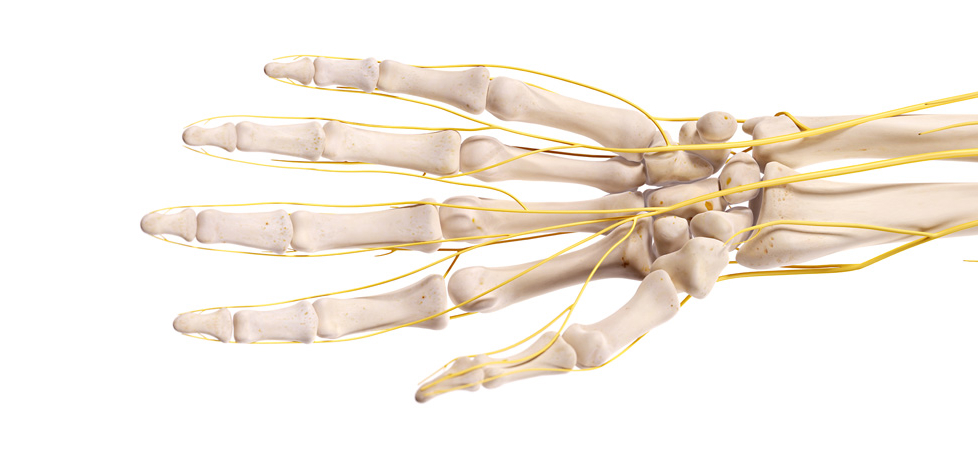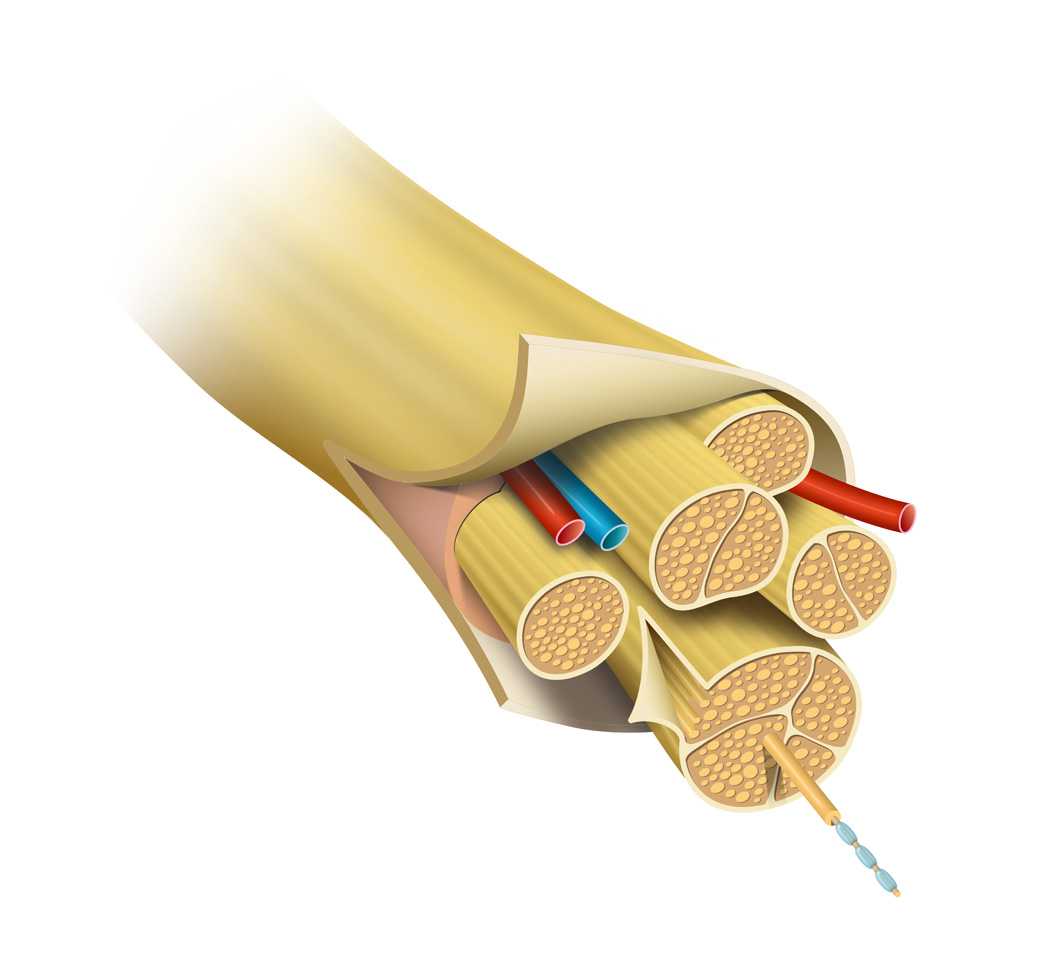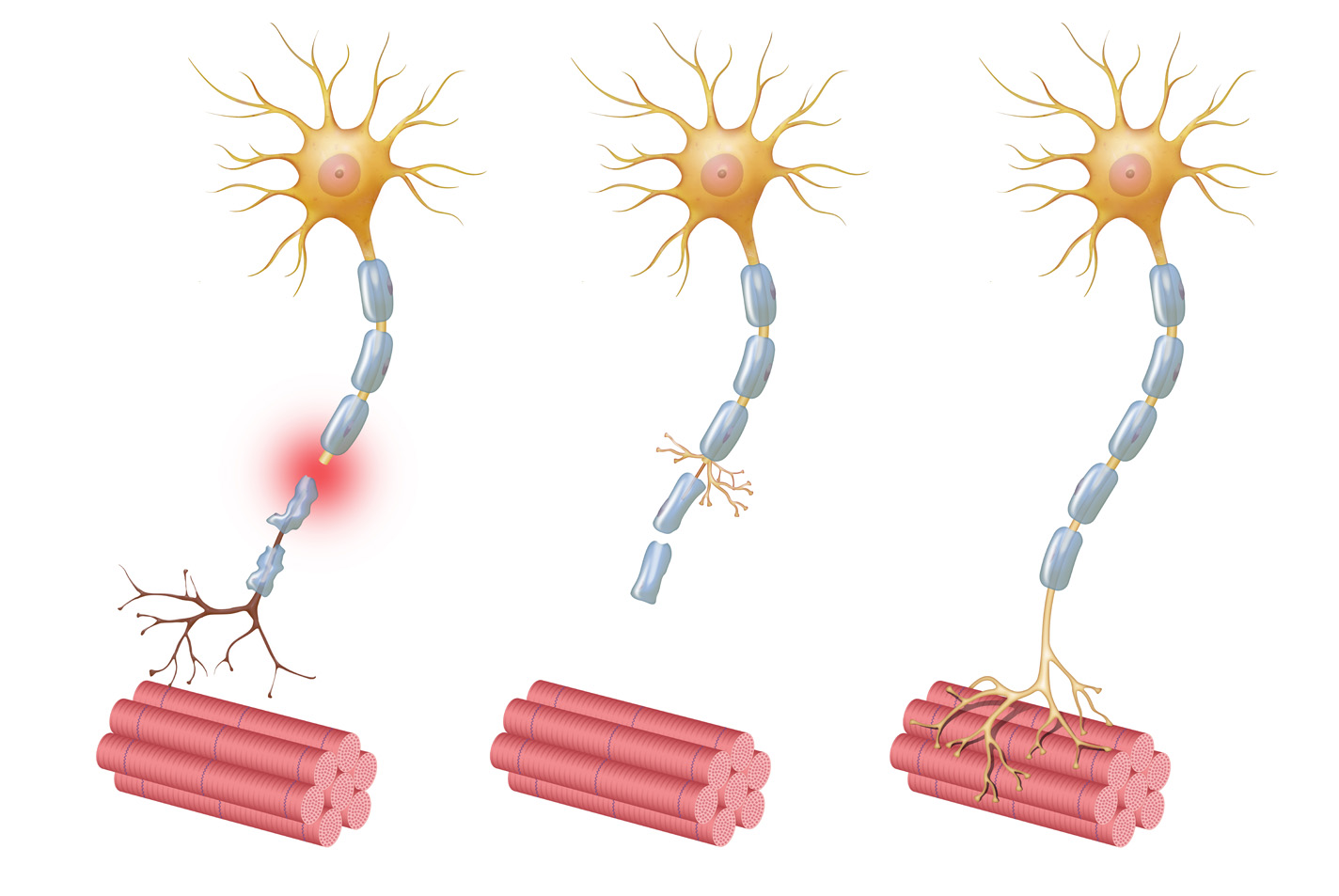Nerve Injuries and Lacerations
Nerves are very much like the fiberoptic cables that carry internet data to and from our homes. Nerves are composed of millions of nerve cells (neurons) that carry information back and forth between our body and our brain. The neurons are wrapped in layers of a protective sheath. When an injury or disease damages either the protective nerve sheath, or the neuron cells inside, that normal flow of data can be disrupted resulting in numbness, tingling, pain, and/or weakness.
 Bone and Nerve Structure of the Hand, Wrist and Fingers
Bone and Nerve Structure of the Hand, Wrist and Fingers
Causes

Anatomy of Nerves
There are many mechanisms by which a nerve can be injured:
- Lacerations (cuts, punctures)
- Blunt trauma (contusions, crush injuries)
- Stretch injuries (joint dislocations, traction injuries)
- Compression (swelling due to injury, carpal tunnel syndrome, cubital tunnel syndrome)
- Associated health problems that can damage nerves
- Diabetes, thyroid, autoimmune, metabolic disorders
Signs and Symptoms
- Numbness and Tingling
- Pain, often described as “shooting”, “shocking”, or “electrical”
- Hypersensitive areas that cause shooting pain when lightly bumped
- Weakness or muscle wasting, hand “clumsiness”
Is there a test for Nerve Injuries and Lacerations?
Yes! By talking with you about your symptoms and medical history, and examining your hand, we can detect many cases of nerve injury. Sometimes additional imaging (MRI, ultrasound) or nerve testing (EMG) will be used to confirm the location and severity of the injured nerve(s) and help guide further treatment.
Treatment
Treatment for nerve injury varies widely depending on the type and severity of the nerve injury.
Nonoperative Treatments: Minor injuries such as suspected nerve contusions or mild stretch injuries can often be treated with observation and will often recover gradually. Sometimes temporary splinting or hand therapy is recommended.
Operative Treatment: Suspected nerve lacerations or more severe crush injuries may require surgical exploration and repair of the damage nerve. If you have an area of numbness after a deep laceration or puncture wound to the hand, seek immediate medical attention as significant delays in repair offer worse outcomes.
Healing of Nerves

Ready to confirm a diagnosis and fix the problem or just want to learn more?
Our board-certified orthopedic hand and wrist surgeons Eric Angermeier, MD and Kyle Kokko, MD, PhD, are here to help! They can often diagnose the problem in one visit, and get you started with a treatment plan. We offer a wide variety of both nonoperative and operative treatment options.
Call today for a clinic or telehealth appointment! 854-429-4263